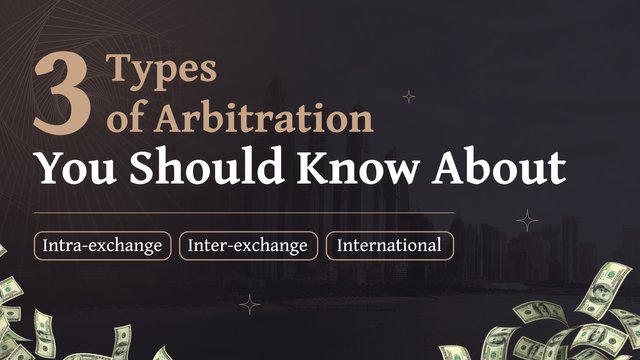Three Types of Arbitration You Should Know About
There are three types of arbitration, based on the scale of the transaction and the number of links involved: intra-exchange, inter-exchange and international. Let's look at the key aspects of each.
Intra-exchange arbitrage
Intra-exchange arbitrage is a type of trading in which a trader simultaneously buys and sells the same financial asset on the same exchange, taking advantage of price differences caused by temporary market anomalies. The goal of this type of arbitrage is to profit from short-term differences in the price of the same asset on the same exchange.
Key aspects of intra-exchange arbitrage:
- A trader makes trades in the same asset (for example, stocks, crypto or currencies) on the same exchange.
- This type of arbitrage operates on the assumption that markets are not always efficient and sometimes the price of the same asset may differ slightly.
- Since price anomalies usually last for a very short time, it is important to react quickly to take advantage of these differences.
- Since arbitrage is based on small price differences, the risk and potential reward are usually small, but can accumulate over many trades.
This type of arbitration differs from inter-exchange and international arbitration in that it is carried out within the same exchange, and not between different exchanges or in different countries. The advantage is that you can save on withdrawal and transaction fees. The downside is that price differences within the same site are rare and insignificant.
Inter-exchange arbitration
Inter-exchange arbitrage is the process of buying and selling the same financial instrument on different exchanges in order to profit from the difference in prices on these exchanges. Unlike intra-exchange arbitrage, where all transactions take place within one platform, inter-exchange arbitration includes several trading platforms.
Main characteristics of inter-exchange arbitrage:
- A trader simultaneously buys an asset on one exchange, where the price is lower, and sells it on another exchange, where the price is higher.
- This type of arbitrage exploits price differences between different exchanges, which may arise due to differences in liquidity, information delays, or other factors.
- Inter-exchange arbitrage requires efficient coordination of trades across different exchanges and often relies on the speed and efficiency of trading systems.
- This type of arbitrage carries additional risks, such as execution risk (the possibility of price changes during trades) and currency fluctuation risk (if trades involve different currencies).
Inter-exchange arbitrage takes advantage of price differences between different exchanges, so the potential for profit can be greater than with intra-exchange arbitrage. But the complexity is correspondingly higher.
International Arbitration
International arbitrage is the process of exploiting price differences for the same asset in different countries or currency areas. This type of arbitrage can involve both foreign exchange and commodity markets, and is based on differences in economic conditions, exchange rates and other geopolitical factors that influence prices.
Features of international arbitration:
- Transactions are carried out on international markets, often in different currency areas.
- International arbitration often takes advantage of differences in exchange rates, as well as asset prices, to make a profit.
- International arbitration takes into account global economic and political changes that may affect prices and exchange rates.
- This type of arbitration requires more complex management and coordination as it involves transactions in different jurisdictions and often with different currencies.
- International arbitration has the potential to earn more, but it comes with high risks, including currency risk, political risk and market volatility risk.
This is the most complex and at the same time the most profitable type of arbitrage of the three. And this is usually done by professional arbitration teams like DarWin Enterprise. The project offers to invest in the Global Arbitrage pool and receive passive income of 2-3% per week.
